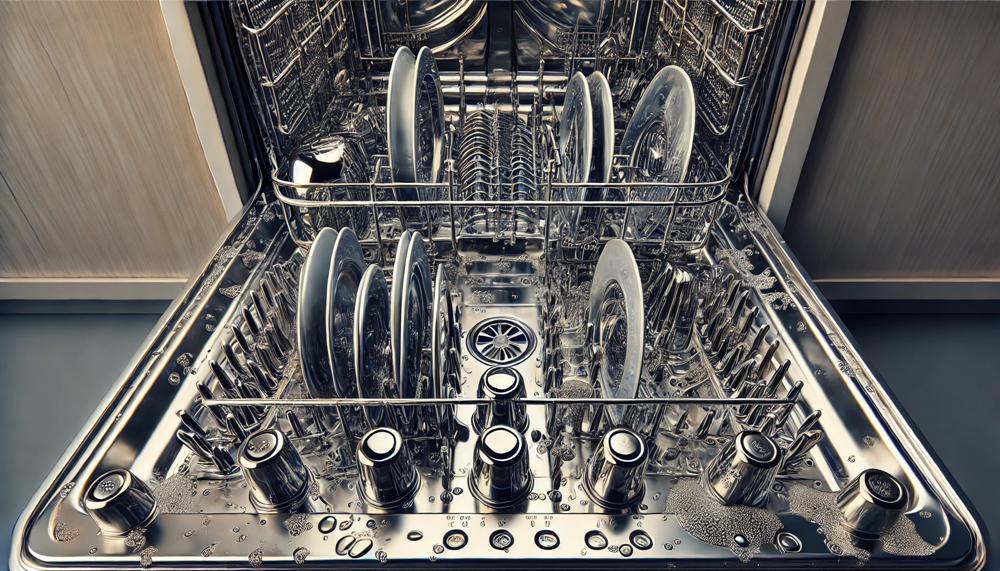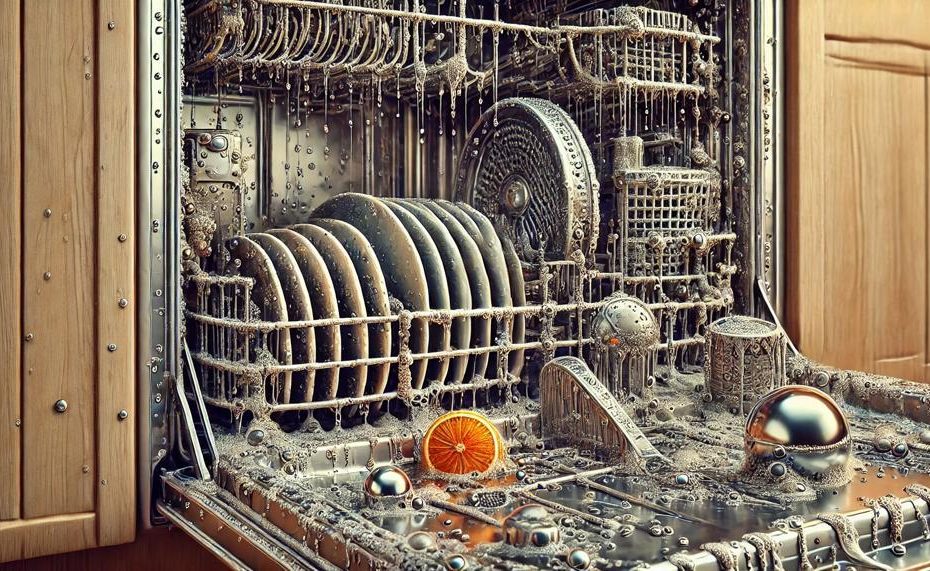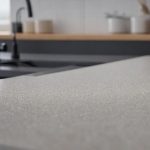Keeping your glasses spotless can be a real challenge, especially when hard water stains leave them looking dull and cloudy. These pesky stains result from mineral buildup, primarily calcium and magnesium, which hard water deposits on your glassware during a dishwasher cycle. The good news is you can reclaim your glassware’s sparkle without resorting to laborious hand-washing or costly cleaning agents.
Here’s the scoop on how to effectively banish those hard water stains from your glasses:
- Clean and Maintain Your Dishwasher: Regular maintenance is key. Clean the filter and remove any accumulated food particles or debris. This prevents buildup and ensures your dishwasher operates at peak efficiency.
- Use a Vinegar Solution: Vinegar’s natural acidity helps dissolve mineral deposits. Place a cup of white vinegar on the top rack and run a hot water cycle. This simple step can leave your glasses shining.
- Try Baking Soda: For stubborn stains, a gentle scrub with baking soda can work wonders. Sprinkle some on a damp cloth, scrub your glasses, and then run them through a hot water cycle.
- Commercial Cleaners: If home remedies fall short, commercial cleaners designed for hard water deposits can be effective. Follow the manufacturer’s instructions for the best results.
- Prevention Tips: Consider installing a water softener to reduce minerals in your water. Using a rinse aid in your dishwasher can also help prevent future buildup.
By incorporating these strategies, you can keep your glasses sparkling clean and free of hard water stains. So next time you open your dishwasher, you can enjoy the gleam of spotless glassware.
Contents
Identifying the Culprit
The common causes of hard water stains on glasses in a dishwasher and their identification can be summarized as follows:

| Cause | Identification | Explanation |
| Hard Water Stains | White or cloudy spots on glass surfaces | Caused by mineral deposits, primarily calcium and magnesium, left behind after water evaporates during the drying cycle. |
| Etching | Permanently frosted or pitted appearance | Resulting from corrosive action of detergents and hot water, which gradually wear away the glass surface. |
Identification Methods
Visual Inspection:
- Hard Water Stains: Look for chalky white residue or cloudy spots.
- Etching: Notice any dull, frosted, or slightly rough patches on the glass.
Touch Test:
- Hard Water Stains: Generally feel smooth to the touch.
- Etching: May feel rough or uneven due to surface damage.
Remedies
- Vinegar Solution:
- Fill a bowl with white vinegar and place it on the top rack. Run a hot water cycle without dishes to dissolve mineral deposits.
- Baking Soda Paste:
- Mix baking soda with water to form a paste. Apply to the stained areas, scrub gently, then rinse.
- Commercial Cleaners:
- Use products designed for hard water stains, following the manufacturer’s instructions carefully.
Preventive Measures
- Rinse Glasses Before Loading:
- Remove food particles to prevent additional staining.
- Use Appropriate Detergent:
- Select dishwasher detergents formulated for hard water.
- Adjust Water Temperature:
- Lowering the temperature can reduce the likelihood of etching.
- Avoid Overloading:
- Ensures better water circulation and effective cleaning.
- Hand Wash Delicate Glasses:
- To prevent damage and maintain clarity.
Simple and Effective Methods to Remove Stains
To tackle hard water stains on glasses in the dishwasher, consider these simple and effective methods:
Using Liquid Cleaners
- Liquid cleaners with mild abrasives can gently remove stains without harming the glass.
- Apply the cleaner directly to the stains and scrub with a soft cloth or sponge.
DIY Cleaner with Lemon Juice
- Combine lemon juice and water to create an effective natural cleaner.
- Lemon juice’s acidity helps break down mineral deposits.
- Apply the mixture to the glass and rinse thoroughly.
Adding a Rinsing Agent
- A rinsing agent in your dishwasher’s rinse compartment can prevent and remove stains.
- It reduces water spots by helping water sheet off the glass during the final rinse cycle.
Non-Gel Toothpaste
- Non-gel toothpaste acts as a gentle abrasive for hard water stains.
- Apply a small amount to a soft cloth and rub the stained areas.
Rinse well to avoid residue.
-
Prevention Measures
- Prevention is key: use rinsing agents or DIY cleaners regularly.
- Avoid abrasive materials to prevent scratching the glass.
If these methods are not sufficient, consider commercial products specifically designed for removing hard water stains. For persistent stains, gentle scraping might be necessary but use caution to avoid damage.
Preventive Measures to Keep Your Glasses Stain-Free
Hard water stains, caused by mineral deposits, can make your glasses look unsightly and dull. To prevent these pesky marks, try these effective and simple methods:
| Method | Details | Effectiveness |
| Drying Glasses Thoroughly | Use a lint-free cloth to dry glasses completely after washing. | High |
| Adjusting Water Temperature | Set dishwasher to a higher temperature to dissolve minerals. | Moderate |
| Adding White Vinegar | Add a cup of white vinegar during the rinse cycle. | High |
| Using a Rinsing Agent | Apply a commercial rinsing agent like Finish Jet-Dry. | High |
| DIY Cleaning Solution | Mix lemon juice with water for the rinse cycle. | Moderate |
| Regular Dishwasher Maintenance | Clean dishwasher with baking soda and vinegar regularly. | High |
Conclusion
Reviving the shine of your glassware from hard water stains doesn’t have to be a chore.
These unsightly marks, caused by mineral buildup, can be effectively tackled with a few simple steps. Regularly clean your dishwasher’s filter to prevent debris from compromising its performance.
Harness the power of natural remedies like white vinegar and baking soda. Place a cup of vinegar on the top rack and run a hot water cycle to dissolve mineral deposits.
For more stubborn stains, gently scrub your glasses with baking soda before another hot water cycle. If home remedies fall short, consider commercial cleaners designed for hard water deposits.
Keeping your dishwasher in peak condition, along with these practical steps, ensures your glasses will remain sparkling and clear, making every drink a delight.





